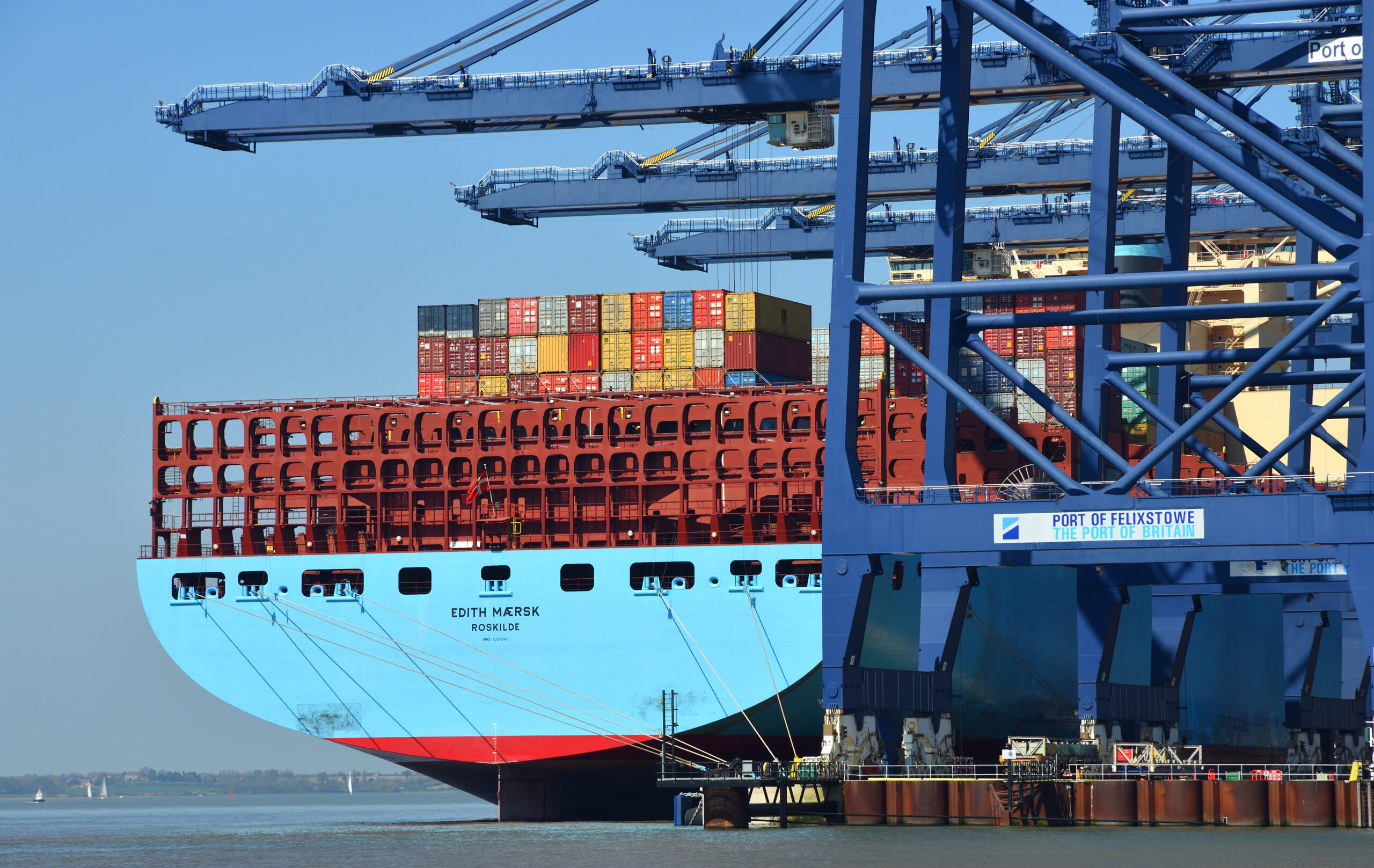The naming ceremony for A.P. Møller-Maersk’s eleventh dual-fuel methanol container vessel, Albert Maersk, took place in Mumbai on 28 February 2025 in a first for India. The event was attended by prominent government dignitaries, including India’s Minister of Ports, Shipping and Waterways, Sarbananda Sonowal, and Maersk CEO, Vincent Clerc, who emphasised the ship’s role in developing a sustainable maritime fleet.
Built by Hyundai Heavy Industries in Ulsan, South Korea, the vessel has a carrying capacity of 16,592 twenty-foot equivalent units (TEU) and is the seventh ship in Maersk’s fleet capable of operating on methanol.
These vessels are integral to Maersk’s strategy of achieving net-zero greenhouse gas (GHG) emissions by 2040. Bio-methanol and e-methanol fuels, which can reduce GHG emissions by at least 65% when compared with traditional marine fuels, will play a crucial role in the maritime energy transition.
India is emerging as a key global player in the production and supply of green methanol, ammonia, and hydrogen-based fuels. Minister Sonowal highlighted India’s potential to become a major hub for alternative fuel production and aligned its trajectory with the maritime sector’s wider objective of sourcing low-emission shipping fuels.
Maersk has stated that it considers India a strategically valuable location for ship repairs and shipbuilding. With its rapidly expanding manufacturing sector, increasing exports, and a thriving e-commerce industry, India’s role in shipping and logistics will become increasingly integral to shipping’s global ecosystem.
At the naming ceremony, Maersk announced a $5 billion investment plan for India’s ports, terminals, and shoreside infrastructure. Maersk currently manages one in every six containers that are imported or exported from India and aims to develop low-emission port facilities while improving efficiency across the supply chain.
Maersk’s presence in India includes two APM Terminals operations located in Mumbai and Pipavav, which together process over three million containers annually, along with a distribution network that reaches over 80% of the country. This planned investment will further enhance these capabilities, ensuring that businesses benefit from streamlined logistics and improved access to global markets.
At the ceremony, Minister Sonowal commented: ‘With demand for green vessels rising, India has the potential to become a major producer and supplier of green methanol, ammonia, and hydrogen-based fuels. Maersk’s decision to focus on green fuel production in India is a welcome step that will accelerate our journey towards a sustainable maritime future.’
Vincent Clerc, CEO of Maersk, said: ‘Maersk continues to take firm steps towards decarbonising shipping with the addition of one more dual-fuel vessel to its fleet. […] Shipping and logistics are high on India’s priorities, and Maersk looks forward to partnering with India on various aspects, such as exploring the potential sourcing of alternative fuels for low-emissions shipping and activities involving shipping repairs and shipbuilding in the future that align well with the Indian Government’s ambitions to promote the shipping sector.’



